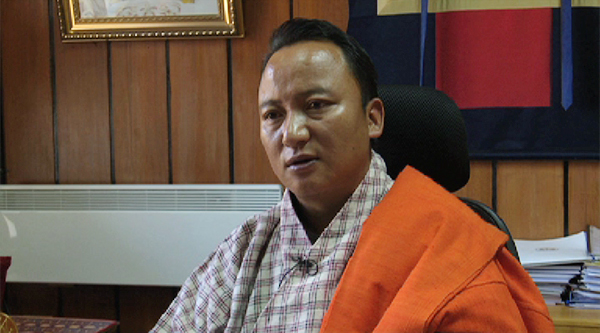 The overall economic loss in the country due to the COVID-19 pandemic is estimated at Nu 4.8bn in 2020 against the previous year. The service sector was the worst affected, while agriculture, livestock and forestry were the only ones unaffected by the pandemic. According to the Finance Ministry, domestic revenue performance was also affected as revenue from all major sources declined except for hydropower.
The overall economic loss in the country due to the COVID-19 pandemic is estimated at Nu 4.8bn in 2020 against the previous year. The service sector was the worst affected, while agriculture, livestock and forestry were the only ones unaffected by the pandemic. According to the Finance Ministry, domestic revenue performance was also affected as revenue from all major sources declined except for hydropower.
The two nationwide lockdowns due to the outbreak of COVID-19 cases had a huge impact on the country’s economy. However, the second lockdown had a lesser impact compared to the first one. Finance Minister Namgay Tshering attributed this to proper planning and controlled preparedness.
“During the second lockdown both export and import were not impacted. Indeed the export of boulder and oranges was in full swing. The government has generated Nu 2bn from the export of boulders. At the same time, the manufacturing industries were operating in self-containment mode. There was no complete stoppage in the production sector. So, during the second lockdown since these major economic activities were afloat it has posed a lesser impact on the economy at large,” Lyonpo said.
The Agriculture sector’s contribution to the gross domestic product increased from 10 to 15 per cent after the outbreak of the pandemic in the country.
“If we look into our country’s economy our economy is kept alive by hydropower at this point of time. In our context, hydropower has proven COVID proof and helped our ailing economy to keep it alive and support the government’s expenses. Now, during the COVID time in 2020, there was major scaling up of production within the country. On the production site, the government has aided and encouraged the farmers to grow more through the provision of concessional borrowing or loans. The farmers have also come forward to produce vegetables. The greatest lesson that we have learnt from the COVID is that in the agriculture sector we have learnt to be self-sufficient to a certain extent which is a positive impact of the COVID,” Lyonpo added.
With the recent approval of the COVID vaccine raising hopes of a turnaround in the pandemic, there is also hope for the tourism sector to resume later in the year.
“The service sector which is largely contributed by the tourism industry continues to be one of the largest impacted economic sectors impacted by the COVID. Therefore, until we vaccinate the entire population, until the vaccine is rolled out across the globe and until people have the confidence to travel the service will continue to be impacted,” Lyonpo said.
Almost Nu 3bn was allocated for COVID-19 related activities such as procurement of personal protective equipment, test kits and to meet quarantine expenses during the 2019-2020 financial year.
Kinzang Lhadon








